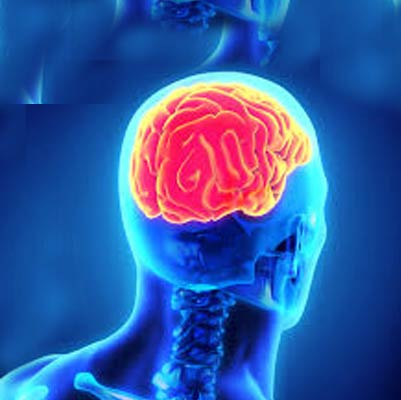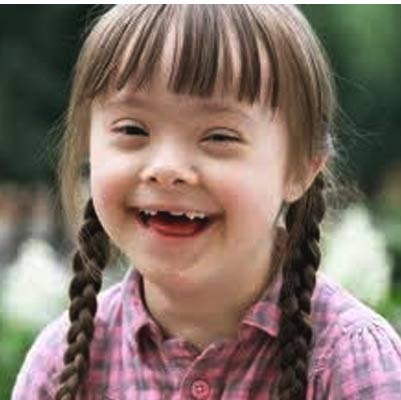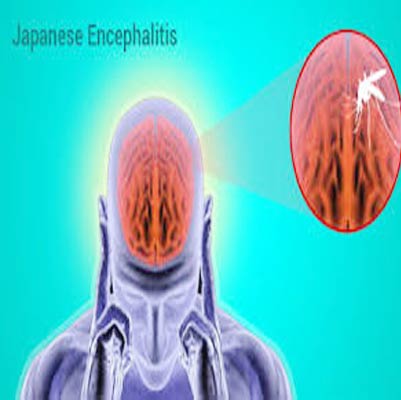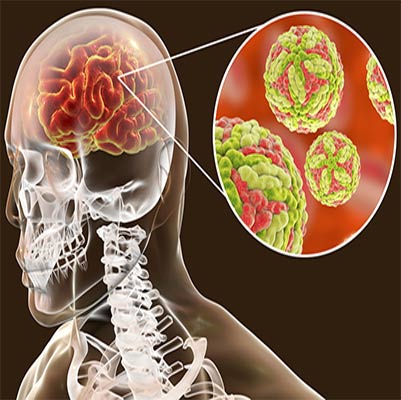coma
Overview
A coma could be a state of prolonged unconsciousness that may be caused by a spread of issues — traumatic head injury, stroke, tumor, drug or alcohol intoxication, or even an underlying health problem, like diabetes or an infection.
A coma is a medical emergency. Swift action is required to preserve life and brain perform. Doctors usually order battery of blood tests and a brain CT scan to undertake to see what is inflicting the coma so correct treatment will begin.
Symptoms
- Closed eyes
- Depressed brain-stem reflexes, like pupils not responding to lightweight
- No responses of limbs, except for reflex movements
- No response to painful stimuli, aside from reflex movements
- Irregular breathing

concussion
Overview
A concussion is a mild traumatic brain injury (TBI) that temporarily affects brain function. It may cause headaches, confusion, memory difficulties, balance problems, and coordination issues.
Concussions usually occur from a blow to the head, a fall, or violent shaking of the head and upper body. Some cases may cause loss of consciousness, but many do not. It’s possible to have a concussion and not realize it immediately.
Symptoms
-
Headache or pressure in the head
-
Temporary loss of consciousness
-
Confusion or feeling “foggy”
-
Amnesia related to the injury event
-
Ringing in the ears
-
Nausea or vomiting
-
Slurred speech
-
Delayed responses
-
Dazed or blank appearance
Effects
-
Short-term memory and concentration problems
-
Dizziness, blurred vision, and fatigue
-
Mood swings, irritability, or anxiety
-
Disturbed sleep patterns (insomnia or excessive sleep)
-
Sensitivity to light and sound
-
Risk of post-concussion syndrome if untreated
-
Repeated concussions may cause long-term brain damage
Treatment
-
Rest – both mental and physical rest are crucial
-
Observation – monitor symptoms closely for 24–48 hours
-
Pain relief – acetaminophen for headaches (avoid strong NSAIDs in early stages)
-
Avoid sports/strenuous activity until cleared by a doctor
-
Gradual recovery – resume daily activities step by step
-
No alcohol or driving until fully recovered
-
Seek urgent care if symptoms worsen (seizures, severe headache, repeated vomiting)
Spaks Homeopathy Treatment
Homeopathy at Spaks aims to promote natural healing and minimize long-term effects of concussion without side effects:
-
Arnica montana – for head injury, pain, and soreness after trauma
-
Natrum sulphuricum – helpful in head injuries with dizziness, depression, or sluggishness
-
Cicuta virosa – for convulsions or jerking after head trauma
-
Hypericum perforatum – for nerve pain and sensitivity after concussion
-
Helleborus niger – for confusion, sluggish memory, or drowsiness

Dementia
Overview
Dementia is not a single disease but a syndrome that describes a set of symptoms affecting memory, thinking, behavior, and social abilities severely enough to interfere with daily life.
Although memory loss is a common feature, it can result from many other conditions as well. Therefore, memory loss alone does not confirm dementia.
Symptoms of Dementia
-
Memory loss (often noticed by family members first)
-
Difficulty communicating or finding words
-
Trouble with reasoning or problem-solving
-
Difficulty handling complex tasks
-
Poor planning and organizing abilities
-
Problems with coordination and motor functions
-
Confusion and disorientation
Causes
-
Alzheimer’s disease (most common cause)
-
Vascular dementia (due to stroke or reduced blood flow to the brain)
-
Lewy body dementia
-
Frontotemporal dementia
-
Infections (HIV, syphilis, meningitis)
-
Chronic alcoholism
-
Nutritional deficiencies (e.g., vitamin B12)
-
Head trauma or brain injury
-
Parkinson’s disease and Huntington’s disease
Effects
-
Loss of independence in daily activities
-
Increased risk of falls and injuries
-
Emotional instability (anxiety, depression, agitation, aggression)
-
Strain on family and caregivers
-
Progressive decline leading to inability to recognize loved ones
-
Severe cases may cause complete dependency and immobility
Treatment
There is no complete cure for most types of dementia, but treatments can help slow progression and manage symptoms:
-
Medications
-
Cholinesterase inhibitors (donepezil, rivastigmine, galantamine)
-
Memantine (for moderate to severe cases)
-
Medicines to manage depression, sleep issues, or agitation
-
-
Therapies & Supportive Care
-
Cognitive stimulation therapy (activities to improve thinking and memory)
-
Occupational therapy (to maintain independence in daily tasks)
-
Lifestyle modifications: balanced diet, physical exercise, social interaction, adequate sleep
-
-
Homeopathic Supportive Remedies (symptom-based)
-
Anacardium orientale – for memory weakness, confusion
-
Baryta carb – for age-related mental decline
-
Lycopodium – for forgetfulness of names, words
-
Phosphoric acid – for mental weakness due to grief or exhaustion
-

Domestic violence
Overview
Domestic violence not only causes physical harm but also has a profound impact on mental health. Many survivors develop conditions such as depression or post-traumatic stress disorder (PTSD).
The longer the abuse continues, the higher the risk of developing serious emotional and psychological disorders. Very few victims are able to leave such situations without lasting effects.
Symptoms
-
Agitation, anxiety, and constant apprehension
-
Being in a constant state of alertness, making it hard to relax or sleep
-
Feelings of despair, helplessness, or hopelessness, with a belief of never escaping the abuser’s control
-
Fear of being unable to protect oneself or children
-
Rejecting help from relatives, friends, or professionals
-
Feeling paralyzed by worry, unable to make decisions or protect oneself
-
Self-blame, believing one deserves the abuse
-
Flashbacks, recurring thoughts, or nightmares related to the violence
-
Emotional distress when reminded of domestic violence
Effects
-
Development of mental health disorders like depression, PTSD, or anxiety
-
Loss of self-confidence and self-worth
-
Emotional isolation and withdrawal from family and friends
-
Sleep disturbances, chronic stress, and physical health decline
-
Risk of substance abuse or suicidal thoughts due to prolonged trauma
Homeopathic Treatment (By Spaks)
Spaks Homeopathy offers a holistic and side-effect-free approach to treat the emotional and psychological aftereffects of domestic violence. The medicines are personalized to help calm the mind, reduce fear, and rebuild self-confidence.
Key Homeopathic Remedies (depending on symptoms):
-
Ignatia Amara – for grief, suppressed emotions, and uncontrollable crying
-
Aconitum Napellus – for intense fear, panic, and shock after trauma
-
Stramonium – for nightmares, violent fears, and feelings of being trapped
-
Natrum Muriaticum – for depression, isolation, and suppressed sadness
-
Arsenicum Album – for anxiety, restlessness, and constant insecurity

Down syndrome
Overview
Down syndrome is a genetic condition and the most common chromosomal abnormality in humans. It occurs when an individual has an extra copy of chromosome 21, leading to developmental changes in the embryo and fetus. This extra genetic material causes both physical and intellectual disabilities, though the severity of symptoms varies from person to person.
Symptoms
-
Small head and short neck
-
Flat facial profile with upward-slanting eyes
-
Low-set, small ears
-
Protruding tongue that may appear too large for the mouth
-
Short hands with broad palms and a single crease across the palm
-
Short fingers and flexible joints
-
Poor muscle tone (hypotonia)
-
Developmental delays in speech, motor skills, and learning
Effects
-
Intellectual disability ranging from mild to moderate
-
Delayed growth and slower developmental milestones
-
Increased risk of heart defects, hearing loss, and vision problems
-
Higher chance of infections due to weak immunity
-
Possible thyroid issues, obesity, and early aging changes
-
Emotional and social challenges, though many children with Down syndrome are affectionate and interactive
Homeopathic Treatment (By Spaks)
While Down syndrome cannot be “cured” as it is a genetic disorder, homeopathy can help manage associated symptoms such as delayed growth, poor muscle tone, recurrent infections, and behavioral issues. The goal is to improve overall quality of life, immunity, and developmental progress.
? Commonly used remedies (based on symptoms):
-
Calcarea Carbonica – for delayed milestones, weak muscles, and frequent colds
-
Baryta Carbonica – for delayed physical and mental development
-
Tuberculinum – for recurrent infections and weak immunity
-
Silicea – for poor assimilation of nutrients and weak constitution
-
Carcinosinum – for improving emotional balance and behavioral issues

Encephalitis
Overview
Encephalitis
Overview
Encephalitis is an inflammation of the brain, most commonly caused by a viral infection.
In some cases, it produces mild flu-like symptoms such as fever or headache, while in others it may progress to serious neurological problems including confusion, seizures, or difficulty with movement and senses.
It can affect people of any age, but infants, young children, and individuals with weakened immunity are more vulnerable. Early diagnosis and treatment are crucial to prevent complications.
Symptoms
-
Fever
-
Drowsiness, lethargy, or even coma
-
Headache
-
Personality changes, irritability, or sudden emotional outbursts
-
Confusion or disorientation
-
Weakness in one or more parts of the body
-
Seizures
-
Bulging soft spots (fontanelles) in infants
Effects of Encephalitis
-
Neurological complications (seizures, speech or movement disorders)
-
Cognitive issues such as memory loss and difficulty concentrating
-
Behavioral changes (irritability, mood swings)
-
Long-term weakness or paralysis in severe cases
-
In rare cases, it can lead to life-threatening brain swelling
Homeopathic Treatment (Spaks Homeopathy)
Spaks Homeopathy provides gentle, side-effect-free treatment that helps in reducing brain inflammation, controlling symptoms, and improving recovery. Remedies are chosen based on the individual’s condition and symptom pattern.
Belladonna – For sudden high fever, throbbing headache, and delirium
Apis Mellifica – For brain inflammation with swelling and drowsiness
Stramonium – For restlessness, confusion, and violent behavior
Hyoscyamus – For seizures with twitching and jerking movements
Arnica Montana – For after-effects of brain injury causing encephalitis-like symptoms
At Spaks Homeopathy, treatment focuses on:
-
Controlling fever, headache, and seizures
-
Reducing inflammation of brain tissues
-
Improving mental clarity and behavior
-
Supporting long-term neurological recovery

Encephalopathy definition
Overview
Encephalopathy
Overview
Encephalopathy is a broad medical term that refers to brain disease, damage, or malfunction.
It can range from mild symptoms such as memory loss and subtle personality changes to severe conditions like dementia, seizures, coma, or even death.
In most cases, encephalopathy presents as an altered mental state and may also include physical difficulties like poor coordination of movements.
Symptoms of Encephalopathy
-
Lethargy (extreme tiredness)
-
Dementia (progressive memory and cognitive decline)
-
Seizures
-
Tremors
-
Muscle twitching and muscle pain (myalgia)
-
Abnormal breathing pattern (Cheyne-Stokes respiration, often seen in brain damage or coma)
-
Coma
Effects of Encephalopathy
-
Memory impairment and loss of concentration
-
Behavioral and personality changes
-
Neurological problems like tremors and muscle weakness
-
Seizures leading to further brain stress
-
In severe cases, irreversible brain damage or death
Homeopathic Treatment (Spaks Homeopathy)
At Spaks Homeopathy, treatment focuses on slowing disease progression, managing symptoms, and improving brain function naturally and safely. Remedies are customized according to the patient’s symptoms and overall health.
Belladonna – For sudden mental confusion, delirium, and seizures
Stramonium – For violent behavior, restlessness, and altered mental state
Arsenicum Album – For extreme weakness, anxiety, and restlessness
Opium – For stupor, drowsiness, and coma-like conditions
Helleborus Niger – For memory loss, mental dullness, and slow responses
Spaks Homeopathy aims to:
-
Improve mental clarity and memory
-
Reduce seizures and tremors
-
Control abnormal behavior and restlessness
-
Support overall brain health and slow down degeneration

Exhaustion
Overview
Mental exhaustion is a condition that can affect anyone exposed to long-term stress. It leaves you feeling overwhelmed, emotionally drained, and unable to cope with daily responsibilities. Even simple tasks may seem impossible, and this constant pressure can affect both your personal and professional life.
Over time, mental exhaustion can lead to detachment, apathy, and lack of motivation, causing serious disruption in overall well-being.
Symptoms
-
Body aches
-
Chronic fatigue or tiredness
-
Changes in appetite (increased or reduced)
-
Frequent headaches
-
Upset stomach or digestive issues
-
Cynicism or negative thinking
-
Apathy (loss of interest or care)
-
Emotional detachment
-
Irritability or anger
-
Hopelessness
-
Constant feelings of dread
Effects of Mental Exhaustion
-
Decline in work performance and productivity
-
Strained personal relationships due to irritability or detachment
-
Weakened immune system, leading to frequent illnesses
-
Difficulty in decision-making and concentration
-
Risk of developing anxiety or depression if left unmanaged
-
Loss of motivation and overall poor quality of life
Treatment with Spaks Homeopathy
Spaks Homeopathy offers a gentle, safe, and holistic approach to treat mental exhaustion by focusing on both the mind and body. The treatment not only reduces symptoms but also strengthens your ability to cope with stress naturally.
Benefits of Spaks Homeopathic Treatment:
-
Relieves stress, anxiety, and irritability
-
Improves sleep quality and energy levels
-
Restores emotional balance and positivity
-
Helps manage headaches, digestive issues, and body pains
-
Boosts immunity and resilience against stress
-
Safe for long-term use without side effects
At Spaks, remedies are personalized after a detailed consultation, ensuring care that matches your unique symptoms and lifestyle.
